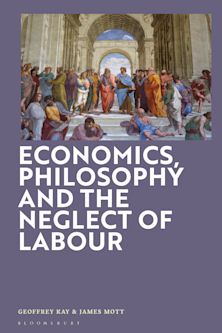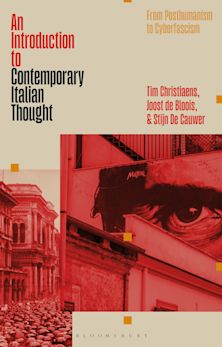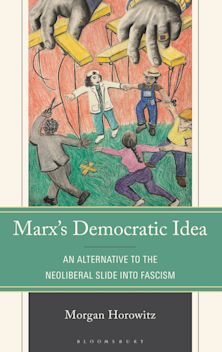For information on how we process your data, read our Privacy Policy
Thank you. We will email you when this book is available to order
You must sign in to add this item to your wishlist. Please sign in or create an account
Description
This compelling introduction to Gandhi's political thought goes beyond his well-known writings to present a much broader portrait that will be valuable to students of political theory, philosophy, and history. Using the principle of individual autonomy_rather than civil disobedience, Indian independence, or duty_as an analytical lens, Ronald J. Terchek offers a completely original interpretation of his subject's political thought. Terchek argues that Gandhi's thought is animated by a concern for the equal respect and regard for all persons, and he describes how Gandhi's writings illuminate several critical discourses in political theory, debates that overlap with many Western writers to whom Gandhi is seldom compared. Throughout the book, Terchek demonstrates that the teachings and work of Gandhi continue to be relevant today, and that he should be viewed as a significant political thinker not only within the Hindu tradition but in the broader context of 20th century political thought.
Table of Contents
Chapter 2 Gandhian Autonomy
Chapter 3 Reclaiming a Tradition and Making It Your Own
Chapter 4 Gandhi's Critique of Modernity
Chapter 5 Defending Civil Society by Questioning Modernization
Chapter 6 Gandhi's Politics
Chapter 7 Challenging Violence and Denying Perfectionism
Chapter 8 Gandhi and the Twenty-First Century
Chapter 9 Appendix: Selections from the Gita
Chapter 10 Bibliography
Chapter 11 Glossary
Chapter 12 Index
Product details
| Published | Jan 01 2000 |
|---|---|
| Format | Ebook (Epub & Mobi) |
| Edition | 1st |
| Extent | 280 |
| ISBN | 9780585114101 |
| Imprint | Rowman & Littlefield Publishers |
| Series | 20th Century Political Thinkers |
| Publisher | Bloomsbury Publishing |
About the contributors
Reviews
-
A seminal analysis of Gandhi, the Thinker. . . . Eminently succeeds in making Gandhi relevant for the next century.
Naresh Dhadhich, director of the Center for Gandhian Studies, University of Rajasthan
-
This is the best study of Gandhi since Joan V. Bondurant's The Conquest of Violence(1965). If one wants to understand Gandhi's philosophy and his relevance to the late 20th century by reading one book, this is that book.
L.P. Fickett, Mary Washington College, Choice Reviews
-
In this original and trenchant exposition of M. K. Gandhi's democratic theory, Ronald Terchek demonstrates through a lucid analysis of the Mahatma's writings that Gandhi's ideas of individual moral autonomy and the civil society must not be ignored, either by social theorists or anyone concerned about shaping a better world in the next millennium.
Dennis Dalton, Barnard College, Columbia University
-
A thoughtful and learned account of the full range of Gandhi's moral and political thought. It stresses both his historicity and continuing relevance and makes a vital contribution to Gandhi scholarship.
Bhikhu Parekh, University of Westminster
-
It is an important book that provides a whole new way of looking at Gandhi: a wonderful defense of autonomy both from domination and violence. It will be useful to have such a penetrating analysis of Gandhi's ideas in the context of our times.
V. R. Mehta, Vice-Chancellor, University of Delhi
-
Ronald Terchek's Republican Paradoxes was a timely retrieval of a neglected strand in Western political theory. His present book, Gandhi, almost compels us to redo a good deal of our politics and our political theory in terms of Gandhi's distinctive idea of the integrity and worth of everyone.
Thomas Pantham, Mahatma Gandhi National Fellow (ICSSR)



































